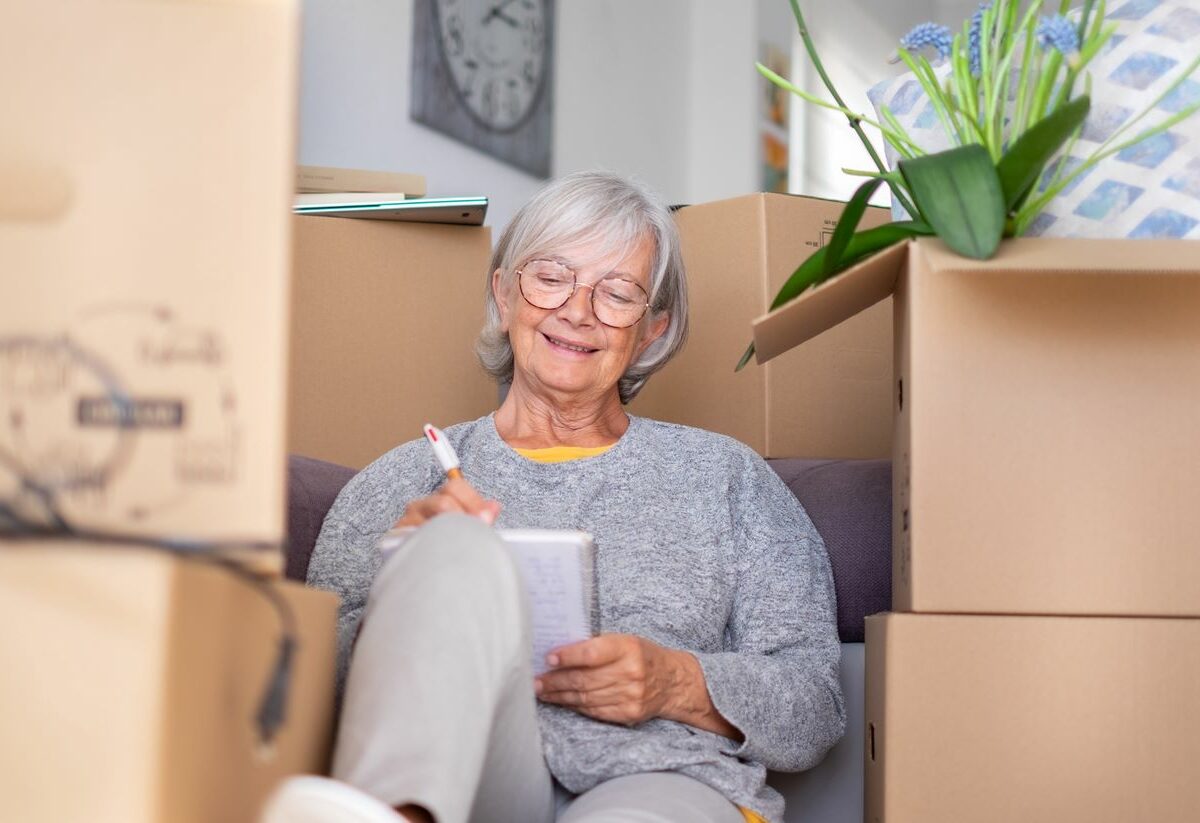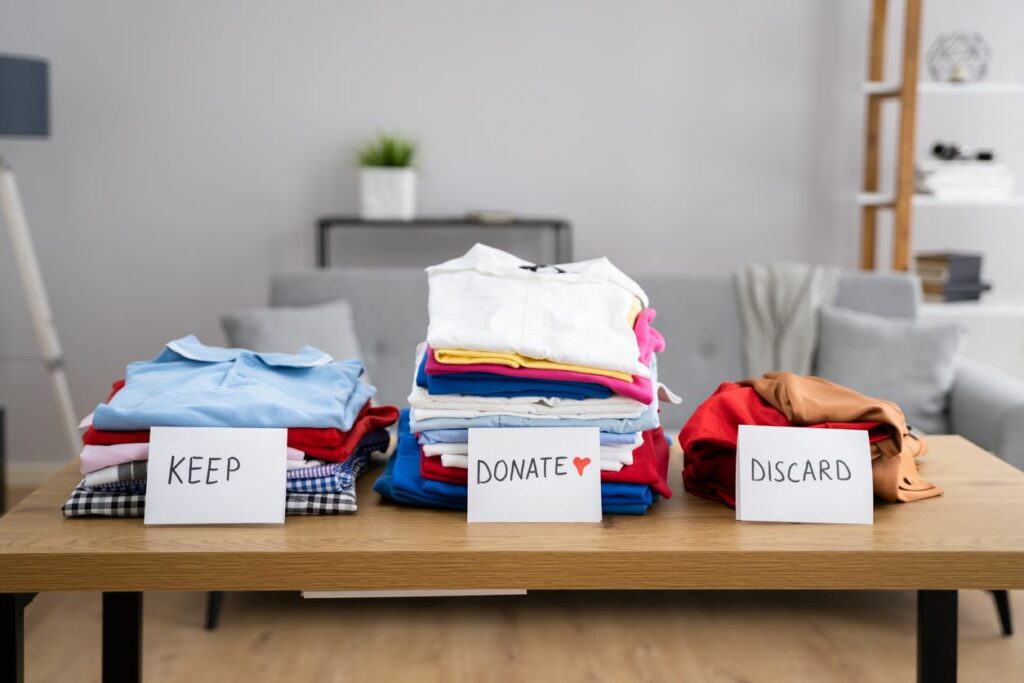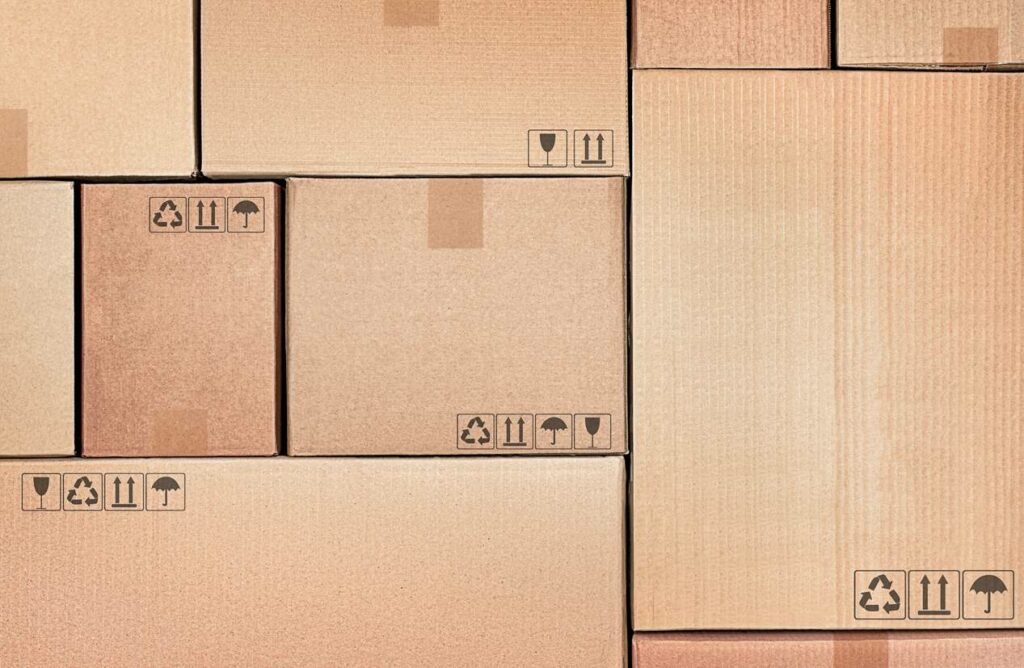Creating a Sustainable Moving Checklist

Moving requires organization, patience, teamwork, and lots of waste. Every year, Americans use 900 million cardboard boxes and produce 8.4 million tons of garbage during their moving processes, among the other vast amounts of packing materials and food that end up in landfills.
Purchasing many boxes and Bubble Wrap can seem necessary for a safe and successful move, but it comes at the expense of the environment. We’ve compiled some eco-friendly moving tips to add to your moving checklist so you can help the planet while heading off to your new home.

Green Moving Practices To Follow
Donating Items While Moving
An easy way to use less packing material is to pack less to begin with. Before you get out any boxes and bins, assess what clothing, furniture, and knickknacks you no longer need. Consider hosting a yard sale to make some money off items that could find a new home, and send the rest to a local donation center to benefit your community.
Several community organizations can make use of your other belongings. Gently used blankets, sheets, and towels can be sent to animal shelters to help puppies and kittens stay cozy. Additionally, to avoid throwing out mountains of food, take unopened or non-perishable items to local shelters, food banks, and other organizations devoted to curbing waste your community produces.
Things You Can Use As Packing Materials
Moving with minimal waste means limiting your use of Bubble Wrap and packing paper. You can save on space by using the belongings you plan to pack as your eco-friendly packing materials. You can wrap plates and glassware in T-shirts and sheets, wrap table legs with blankets, and pad picture frames with pillows.
Pack Kitchen Supplies Last
If you seal away your plates and utensils too early in the moving process, you’ll turn to disposable plates and forks, which generate a significant amount of trash. Save the bulk of your kitchen-related packing until the end of the process, and save out a few essential items you can pack away at the final hour.

Limit Your Box Usage
Although cardboard is recyclable, don’t go overboard with your dependence on boxes. In fact, of the 110 million tons of paper and cardboard used annually, only 38% ends up being recycled, while 56% ends up in landfills. You can do your part in the mantra of reducing, reusing, and recycling by hammering down on that first point. Opt for storage bins that can be used for residential storage after your move, and pack inside suitcases, drawers, duffel bags, and large appliances. Some companies also offer rental and secondhand boxes you can use.
Save Materials After You Unpack
After your environmentally conscious relocation concludes, don’t reach for the dumpster to dispose of your packing materials. Anything you use to pack your things can be saved for future packing, moving, and storage-related needs, saving money and the planet.
Pack Away Belongings Post-Move With Copper Safe Storage
Are you hoping to optimize space in your new home? Copper Safe Storage has the extra room you’ve been looking for! We have affordable, secure personal storage solutions so you can have the room to breathe in your living space that you deserve. Discover our wide variety of storage units at a facility near you, and contact us today to get started!